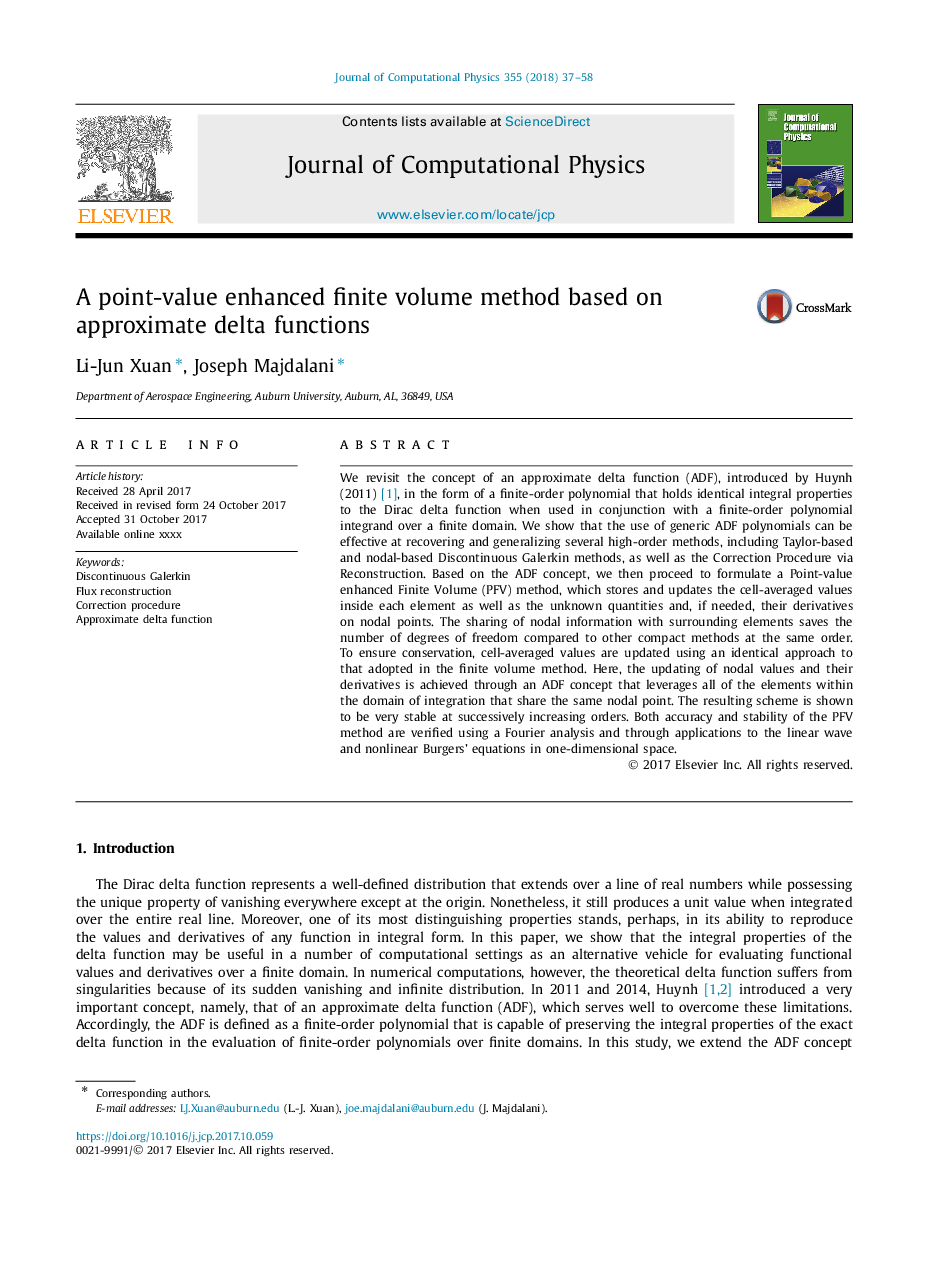| Article ID | Journal | Published Year | Pages | File Type |
|---|---|---|---|---|
| 6929187 | Journal of Computational Physics | 2018 | 22 Pages |
Abstract
We revisit the concept of an approximate delta function (ADF), introduced by Huynh (2011) [1], in the form of a finite-order polynomial that holds identical integral properties to the Dirac delta function when used in conjunction with a finite-order polynomial integrand over a finite domain. We show that the use of generic ADF polynomials can be effective at recovering and generalizing several high-order methods, including Taylor-based and nodal-based Discontinuous Galerkin methods, as well as the Correction Procedure via Reconstruction. Based on the ADF concept, we then proceed to formulate a Point-value enhanced Finite Volume (PFV) method, which stores and updates the cell-averaged values inside each element as well as the unknown quantities and, if needed, their derivatives on nodal points. The sharing of nodal information with surrounding elements saves the number of degrees of freedom compared to other compact methods at the same order. To ensure conservation, cell-averaged values are updated using an identical approach to that adopted in the finite volume method. Here, the updating of nodal values and their derivatives is achieved through an ADF concept that leverages all of the elements within the domain of integration that share the same nodal point. The resulting scheme is shown to be very stable at successively increasing orders. Both accuracy and stability of the PFV method are verified using a Fourier analysis and through applications to the linear wave and nonlinear Burgers' equations in one-dimensional space.
Related Topics
Physical Sciences and Engineering
Computer Science
Computer Science Applications
Authors
Li-Jun Xuan, Joseph Majdalani,
